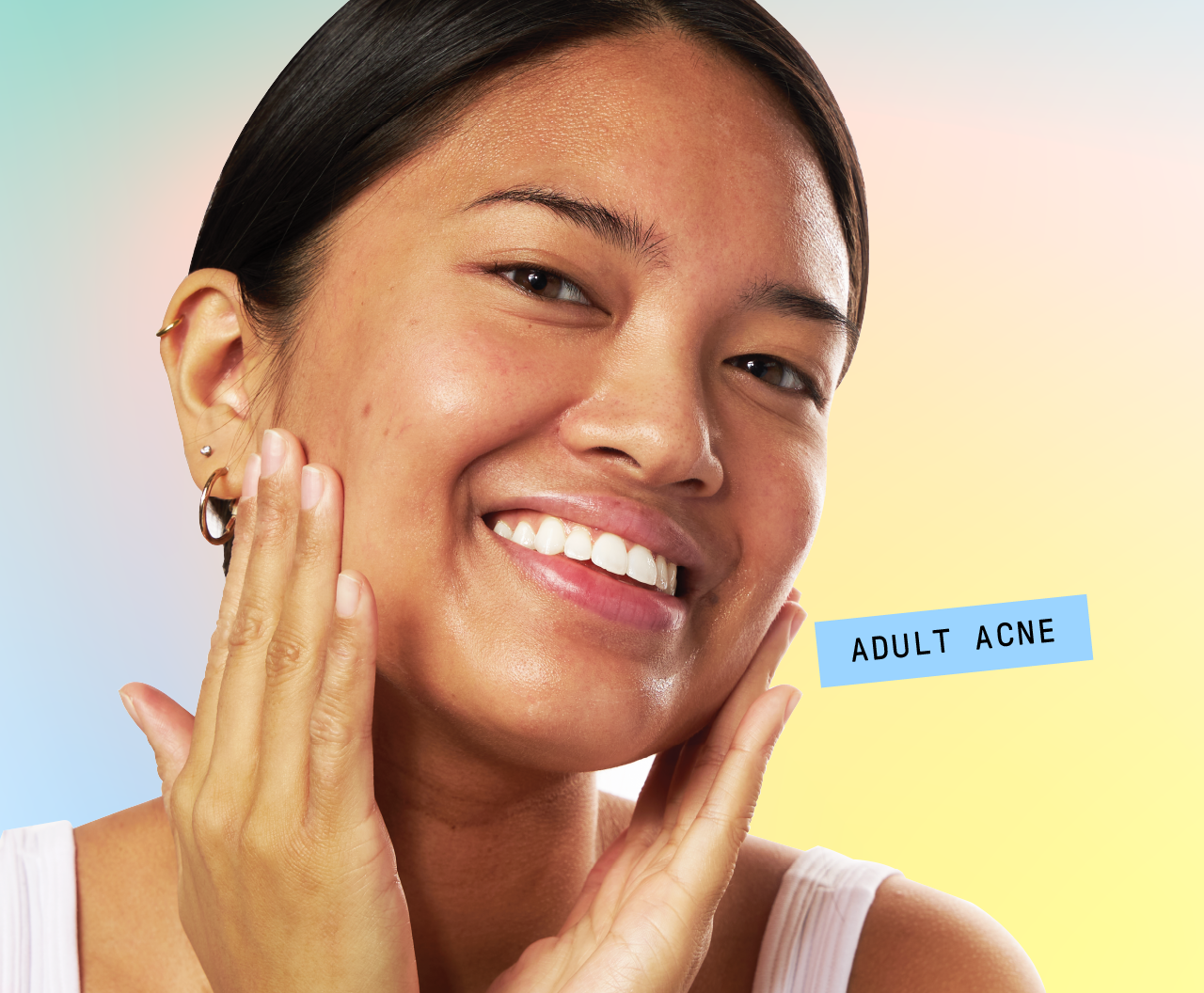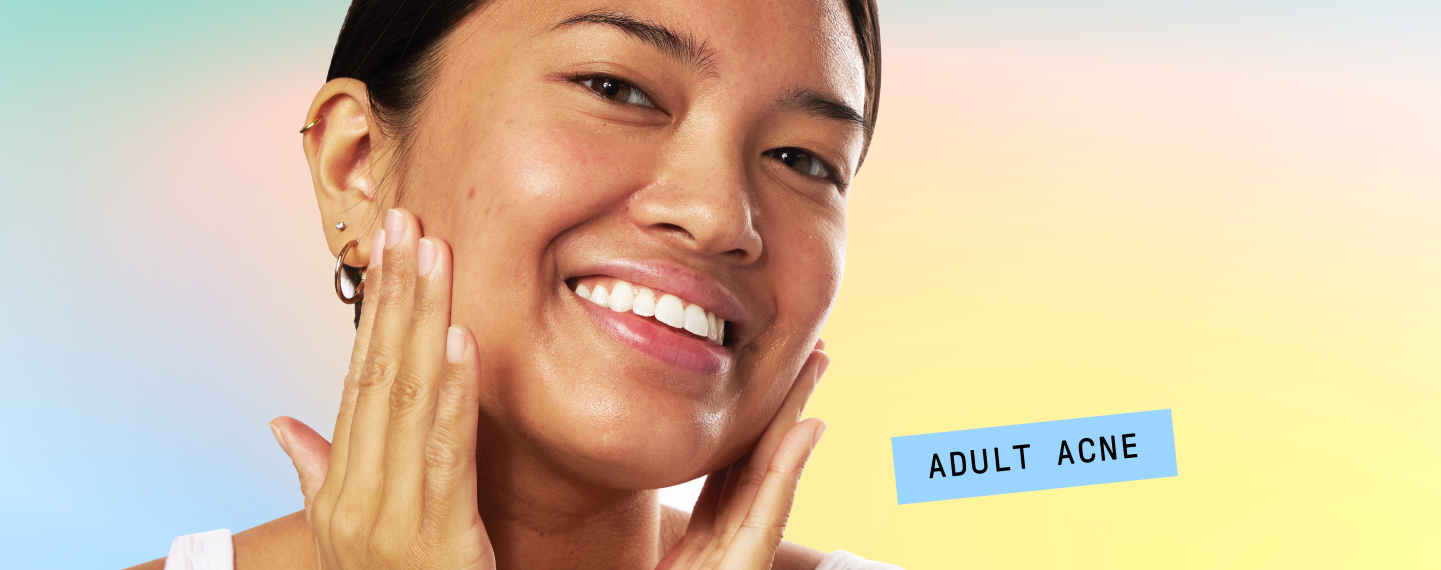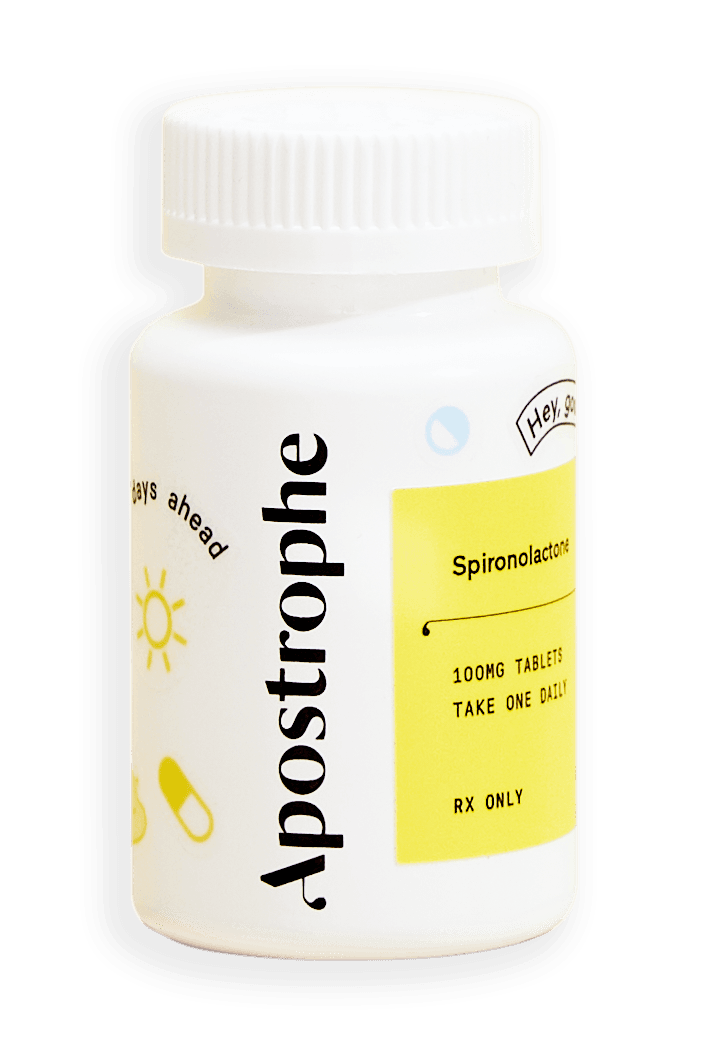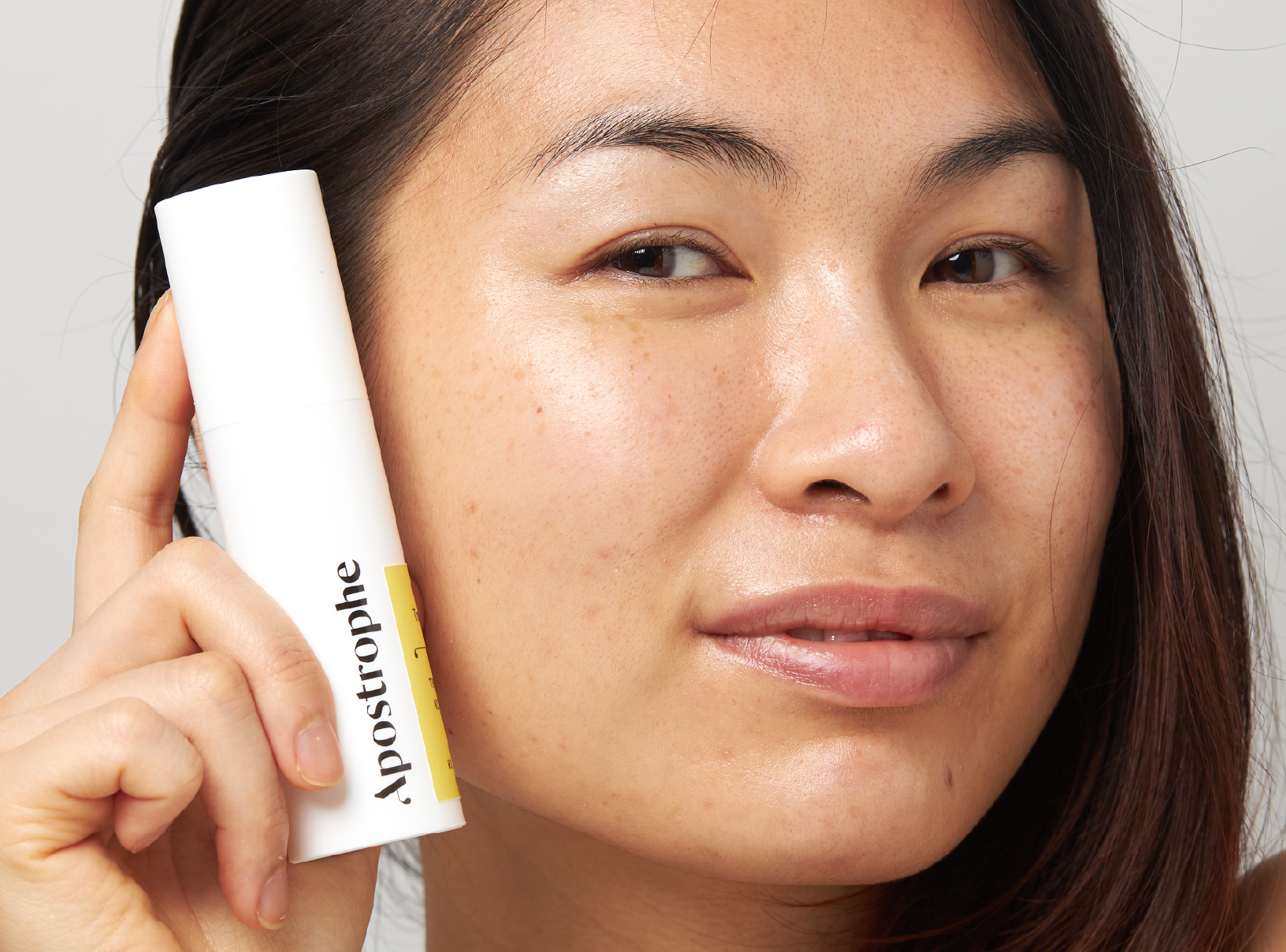Education
Adult Acne Causes and Treatments


SHARE
Education
Adult Acne Causes and Treatments
Medically reviewed by Aimee Paik, MD
Written by Annie Lam
Last updated 11/3/2024
Many people believe that breakouts are most commonly found in teenage years, but adult onset acne is extremely common. Did you know? Over 1/2 of women in their 20s and over 1/3 of women in their 30s experience adult acne.
While acne breakouts can be stubborn and frustrating, knowing what causes your adult acne and getting proper treatment can help! So today we're breaking down everything you need to know about adult acne causes and treatments.
What causes adult acne?
Like all types of acne, the root cause is clogged hair follicles. The reason why your pores get clogged can vary. Acne is complex and can be caused by a variety of different factors, the two most common being:
Hormones
One of the main causes of adult acne is fluctuating hormone levels. A hormone imbalance can lead to an increase of androgens, which can contribute to adult hormonal acne. Women often experience a hormonal change or hormonal fluctuation during their menstrual cycles, pregnancy, and menopause. Additionally, certain diseases like polycystic ovary syndrome (PCOS) can increase the likelihood of acne.
Genetics
If you've ever wondered "Is Acne Genetic?" we're here to tell you that genetics play a large role. Your family's history of acne can directly correlate with your likelihood of experiencing acne as well.
These are the two main causes of acne, but stress, diet, and environmental factors can all play a role. So while teenage acne is very common, adult acne is affecting more and more people in recent years.
When does adult acne stop?
Adult acne is the most common in your 20s and 30s. However, it can occur into your 40s and 50s as well. Many women experience adult acne due to hormonal fluctuations, but adult acne in men is also very prevalent.
While this may seem discouraging, not all hope is lost. There are many amazing skin treatments that can help target adult breakouts.
How to treat adult acne
Like all types of acne, there is no magic treatment that will get rid of acne forever. However, there are many effective skin treatments that can help target breakouts. The dermatology providers on our platform typically recommend using all-over acne treatments to effectively treat and prevent breakouts vs acne spot treatments.
If you're dealing with very mild acne, over the counter treatments can help. Many over the counter treatments use acne ingredients like salicylic acid and benzoyl peroxide. However, for more moderate to severe acne vulgaris, you may want to look into prescription medications from a dermatology provider.
Topical adult acne treatment
Tretinoin: A topical retinoid that removes dead skin cells to unclog pores and help with mild acne scars.
Azelaic Acid: A treatment that has natural anti-bacterial and anti-inflammatory properties.
Clindamycin: Calms inflammatory acne and targets acne causing bacteria (You can also find this ingredient in our body acne treatment!)
Topical Spironolactone: A topical medication that balances sebum production and treats the hormonal causes of acne.
When it comes to treating male adult acne, topical spironolactone is a great option because it works at the skin level. Comparatively, oral spironolactone is typically only recommended for women.
Oral adult acne treatment
Oral contraceptives: Birth control pills with estrogen and progesterone can help treat adult hormonal acne.
Oral spironolactone: An oral medication that helps balance oily skin and targets the hormonal causes of acne.
Oral antibiotics: Oral medications like doxycycline and minocycline help to calm inflammatory lesions and target acne causing bacteria (cutibacterium acnes).
Isotretinoin (Accutane): An oral retinoid that is typically used to treat severe, cystic acne.
How to get expert treatment for your adult acne
Whether you're dealing with teen acne or adult acne, a dermatologist or provider can help you on your skin care journey. If you're looking for an adult acne specialist, leave it up to the professionals. Through Apostrophe, you'll get access to customized skin care treatment from an expert dermatology team.
Whether you're dealing with facial acne, body acne (back, butt, and chest acne), acne scarring, or rosacea, we've got you covered. Get customized prescription acne medication for adults today!
Sources:
"Will My Adult Acne Ever Go Away?" - Skin Center of South Miami
"Adult acne: Understanding underlying causes and banishing breakouts" - Kristina Liu, MD MHS, Janelle Nassim, MD, Harvard Health Publishing
Shop this post

Oral minocycline

Oral Spironolactone

Oral doxycycline

Tretinoin

Finacea (azelaic acid)

Clindamycin

Topical Spironolactone
Like what you just read? Sign up for our email list to get the scoop on skincare science delivered straight to your inbox.

Deep Dives
A dermatologist shares his thoughts on the recent studies about benzoyl peroxide and benzene.
Read More
Education
What is milia?
What is milia? Today, we’re jumping into one type of bump that you may have heard about most commonly in infants — milia.
Read More
Education
Best moisturizer for acne-prone skin
If you have combination acne-prone skin, figuring out which moisturizer is best for your skin might be tough. In this guide, we break down the best moisturizer for combination, acne-prone skin.
Read More
